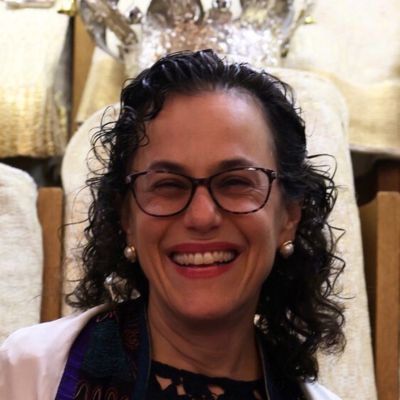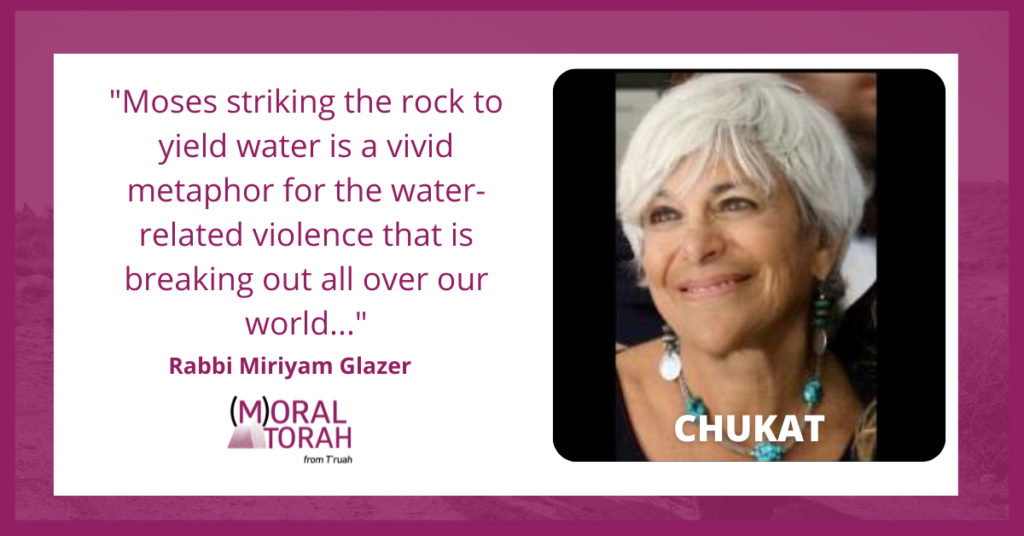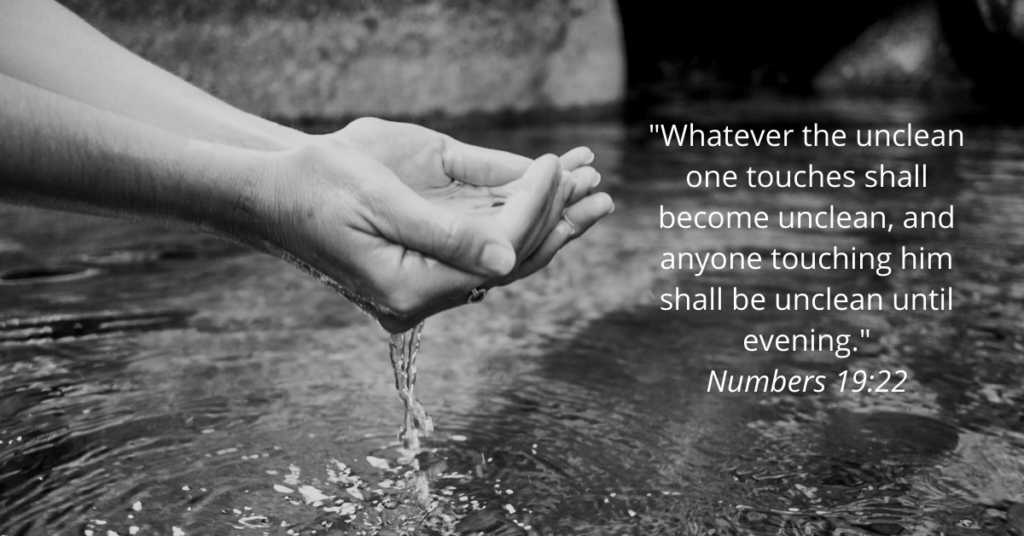Chukat

Chukat: Moses, the Rock, and Me
This, to me, is the Torah: It is liberation. It is the release that comes from being seen, truly seen, in our whole, struggling, imperfect selves.
more

Chukat: Leading and Listening
Facing the climate change disaster means facing one another with respect and sincere empathy. Only then can we manage the amount of work it will take to fix that in which each of us has a stake.
more

Chukat-Balak: Seeing Ourselves Through the Eyes of Others
I like to imagine that Balaam’s words changed us and shook us out of our complaining so that we could see ourselves in a fresh way.
more

“And the community was without water….”
Our Torah depicts what can happen to us in a world without water... Moses striking the rock to yield water is a vivid metaphor for the water-related violence that is breaking out all over our world — particularly in the Middle East, as well as in South Asia and Africa.
more

Juneteenth: Freedom as an Ongoing Struggle
Rabbinical Student and T'ruah board member Kelly Whitehead on Juneteenth and collective memory.
more

Purell, Red Heifers, and Why Not Being Racist Isn’t Enough
And at some point, I looked down at my hands and my children’s hands, spotless from washing, no dirt under our nails, and I thought about the historical chain of racist violence and state-sanctioned brutality that our hands grasped. Our social system makes certainty of our cleanliness an impossibility. Quite the opposite: we are all unclean, no matter how much we may have washed.
more

How We Deal With Our Anger
For Parshat Chukat, Rabbi Matthew D. Gewirtz offers us a more useful way to channel our anger.
more

Not Striking the Rock Again (Parshat Chukat)
For Parshat Chukat, Rabbi Benjamin Barnett writes about the challenges facing Israel's Bedouin.
more


The Paradigm of a Perfect World
For Parshat Chukat, Rabbi Jill Hausman writes about selfishness.
more
